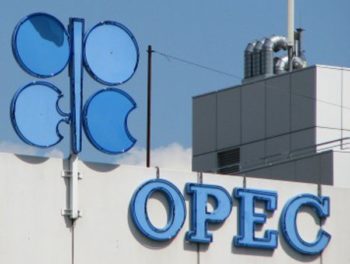
OPEC has described crude oil’s rally towards $80 a barrel as a short-term spike driven by geopolitics rather than any supply shortage.
Four OPEC delegates said the latest statement from the organisation was a sign the group is not rushing yet to rethink its supply-cutting agreement.
The view of top exporter Saudi Arabia is that any brief, speculator-driven jump in oil prices is not sufficient grounds for producers to boost output, an OPEC source familiar with the kingdom’s thinking said.
For such a decision to occur, the rally would need to be driven by data pointing to a supply impact, the source said.
The four OPEC delegates said the latest rise in prices stemmed more from concern about U.S. sanctions on Iran and tension in the Middle East, rather than a suddenly tighter balance between oil supply and demand.
“Prices are high just because of the tensions,” one of the OPEC delegates, who declined to be identified said.
Since last year, oil has been supported by a deal by the Organization of the Petroleum Exporting Countries, plus Russia and other non-members, to cut output. Prices have risen about 40 percent since the accord began in January 2017.
Global benchmark Brent crude on Tuesday hit $79.47, the highest since November 2014, before easing below $78 on Wednesday. Prices could rally further before declining, according to some in OPEC.
“It may exceed $80 and then go down,” one of the sources said. In any case, the extent of the rally has yet to cause any real concern. “Not yet,” said another delegate, asked whether oil at $79 was too high.
U.S. President Donald Trump last month accused OPEC of “artificially” boosting prices, putting pressure on producers to cool the market and in turn drawing a rebuke from some OPEC members.
OPEC and its allies are cutting production by about 1.8 million barrels per day, almost 2 percent of world supply, until the end of 2018. Oil ministers meet on June 22-23 to review the policy.
The producers’ original goal was to reduce oil inventories to the five-year average. While this has largely been achieved, ministers have said other metrics should be considered such as oil industry investment, suggesting they are in no hurry yet to wind down supply cuts.
Nonetheless, delegates pointed to growing concern about a decline in Venezuelan output due to economic crisis, which officials had downplayed when inventories were higher.
OPEC has over-delivered on the supply cut due in part to lower Venezuelan supply.
OPEC has no official target price for oil. Saudi Arabia has emerged over the past year as OPEC’s leading supporter of measures to boost prices, however, a change from Riyadh’s previous, more moderate stance.
The kingdom, keen to fund economic reforms, would be happy to see crude rise to $80 or even $100, industry sources told Reuters last month.
Iran, once a keen OPEC price hawk, now wants lower prices than Saudi Arabia, and has said exporters should aim for crude around $60 to contain U.S. shale oil growth.
“When oil prices rise due to geopolitical concern and not due to demand and supply and fundamentals, it cannot be reasonable,” a source familiar with Iranian thinking said of the current rally.
Agency Report